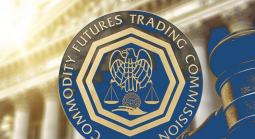New Jersey Online Gambling Just In Time For Dying Atlantic City

Remember back in the days when Atlantic City used to be a dump?
Well, the casino Mecca is heading back in that direction it seems.
The Newark Star Ledger this week reported that, in just four short years, the nation’s second largest gambling destination has lost nearly 25 percent of its market share.
That paper noted that year-end figures released Monday show Atlantic City's casinos took in $3.6 billion in 2010, down from $5.2 billion in 2006, a decline of nearly 31 percent.
Legislation that passed through the state assembly Monday night would allow for less regulation and a state-run tourism district. Part of the legislative package also includes regulation for Internet gambling, which would be run from servers out of Atlantic City. The casino destination was also set to join Las Vegas in offering sportsbooks and wagering on such events as the Super Bowl.
"This is the year I actually look at the glass as being half-full," Bob Griffin, CEO of Trump Entertainment Resorts, told the Star Ledger.
Gambling revenue was down at every casino with a range of 4.2 percent at Tropicana to a whopping 19 percent at Resorts. Slot revenue was down 9 percent to $2.48 billion, while table games revenue fell 10.9 percent to $1.09 billion, according to the paper.
While New Jersey Governor Chris Christie has not outwardly supported legalized online gambling in the state, the measure to allow sports betting on the Web and Internet poker is part of the overall legislative package, and since Christie is the individual who orchestrated the efforts to revitalize Atlantic City, it is widely expected he will sign the bill into law.
Christie has 45 days to either sign the bill into law or veto it. Should the Governor decide to sign the measure into law, New Jersey would become the first state in the US to allow licensing of gambling sites. Even with a veto, the NJ legislation can overturn his decision. Still, a two-third majority in the Senate would be needed and the Republican-led majority could ultimately side with Christie.
Federal law currently prohibits sports betting in the state of New Jersey. There are exceptions for only four US states, including Nevada. A lawsuit was filed against the US Government but Christie decided not to take part, citing only that such an action was a “low priority”. This, however, was before his efforts to revitalize ailing Atlantic City.
State Senator Raymond Lesniak has championed the bill and hopes for a day when New Jersey becomes the “Silicon Valley of Internet Gambling”.
He claims the new industry would result in potential revenue of $205 million to $472 million and 21,746 to 57,085 jobs.
“Legislation I have introduced, S-490, to authorize internet gaming from servers located in Atlantic City needs to get moving now,'' Lesniak said. ‘It will produce more revenue for reinvestment in Atlantic City, much needed revenue for the state, keep our valuable racing industry alive, and create thousands of jobs for our residents.
"Who could possibly be against this?'' Lesniak added. "The casino industry, that's who! Why? Because it's lobbying for federal legislation which will prevent New Jersey from getting any revenues from Internet gaming. What a tragedy it will be if we let them fleece the people of the state of New Jersey and sell out Atlantic City, the Meadowlands, Monmouth Racetrack and our horse farms in the process.''
Brian McGraw of Open Market sees the New Jersey online gambling bill as having larger national implications.
“The bill might serve as a model demonstrating that allowing Americans to gamble within the confines of their own homes won’t end the world, that there will be safeguards in effect to alleviate concerns about limiting participation to adults, etc.”
- Christopher Costigan, Gambling911.com Publisher













